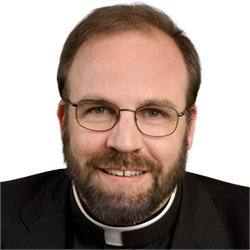
photo by Andrew Mason CC
“Its all in your mind.”
“Its just a chemical imbalance.”
“You just need to turn it over to God.”
All of these are statements that have been made about mental illness. They tend to be made particularly often to individuals whose disorders have not impaired their reason, who still appear “normal”. Those struggling with anxiety and depression may be especially likely to hear views on their mental illness like the ones above. What might the impact of each statement be for an individual who struggles with mental illness? Lets break it down. Read More →
 When I was growing up older folks often spoke of a “mid-life crisis.” Hitting forty was usually the critical period they had in mind. These days I’ve noticed it hits a lot sooner. Maybe it’s because we live in a “youth culture” that forces the questions of aging and being successful a lot quicker. Maybe it’s just the stress. But these days, there’s just something about the mid-thirties that hits a lot of folks. I was no exception. My mid-thirties were difficult years for me—years filled with anxiety and self-doubt.
When I was growing up older folks often spoke of a “mid-life crisis.” Hitting forty was usually the critical period they had in mind. These days I’ve noticed it hits a lot sooner. Maybe it’s because we live in a “youth culture” that forces the questions of aging and being successful a lot quicker. Maybe it’s just the stress. But these days, there’s just something about the mid-thirties that hits a lot of folks. I was no exception. My mid-thirties were difficult years for me—years filled with anxiety and self-doubt. A friend recently asked me how someone might know when they may be ready to consider taking medication for emotional or psychological concerns. This is an important question and one that strikes at the heart of a complex and still emerging field of research. I first want to emphatically note that I am not a psychiatrist or medical doctor and what follows is
A friend recently asked me how someone might know when they may be ready to consider taking medication for emotional or psychological concerns. This is an important question and one that strikes at the heart of a complex and still emerging field of research. I first want to emphatically note that I am not a psychiatrist or medical doctor and what follows is  Our culture is obsessed with happiness. From a purely individual perspective, happiness seems to be the obvious and ultimate goal. Quite often, the second highest goal is avoiding pain or sadness. Pursue happiness, avoid pain: seems like common sense, right? Too bad its a really poor prescription for actual living.
Our culture is obsessed with happiness. From a purely individual perspective, happiness seems to be the obvious and ultimate goal. Quite often, the second highest goal is avoiding pain or sadness. Pursue happiness, avoid pain: seems like common sense, right? Too bad its a really poor prescription for actual living.
 New Year’s resolutions are common, but even more ubiquitous are jokes about the failure of those resolutions. Nevertheless, we all know that some changes are important, so how can you defy the stereotype and make a successful resolution this year? Help is here in the form of some common wisdom (SMART goals), uncommon research (from John Norcross) and some personal additions on the process of setting goals.
New Year’s resolutions are common, but even more ubiquitous are jokes about the failure of those resolutions. Nevertheless, we all know that some changes are important, so how can you defy the stereotype and make a successful resolution this year? Help is here in the form of some common wisdom (SMART goals), uncommon research (from John Norcross) and some personal additions on the process of setting goals.